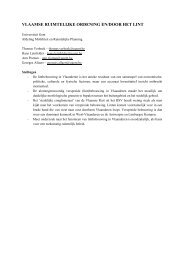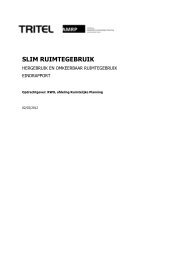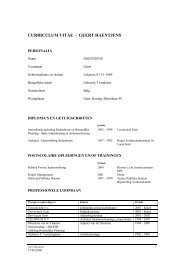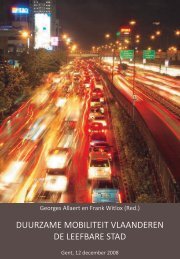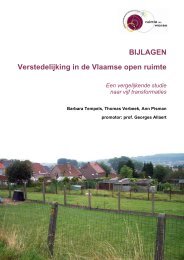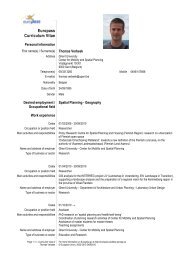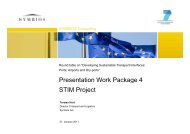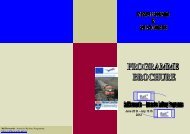third international conference on climate change
third international conference on climate change
third international conference on climate change
You also want an ePaper? Increase the reach of your titles
YUMPU automatically turns print PDFs into web optimized ePapers that Google loves.
Third Internati<strong>on</strong>al C<strong>on</strong>ference <strong>on</strong> Climate Change<br />
2011 CLIMATE CHANGE CONFERENCE PLENARY SPEAKERS<br />
Alis<strong>on</strong> Anders<strong>on</strong><br />
Alis<strong>on</strong> Anders<strong>on</strong> is Professor of Sociology in the School of Social Science and Social Work at the University of Plymouth<br />
UK. She has a BA (H<strong>on</strong>s) in Sociology from the University of York and a PhD in ‗The Producti<strong>on</strong> of Envir<strong>on</strong>mental News‘<br />
from the University of Greenwich, and has researched and published extensively <strong>on</strong> media and envir<strong>on</strong>mental risks over the<br />
past twenty years. Her most recent co-authored book is Nanotechnology, Risk and Communicati<strong>on</strong> (Palgrave, 2009) and<br />
her forthcoming book is entitled Media, Envir<strong>on</strong>ment and the Network Society (Palgrave, 2011). She has guest edited a<br />
number of special editi<strong>on</strong>s of journals including: Health, Risk and Society; Journal of Risk Research; New Genetics and<br />
Society and Sociological Research Online. Her Ec<strong>on</strong>omic and Social Research Council and British Academy funded<br />
research <strong>on</strong> nanotechnologies is am<strong>on</strong>g the first <strong>on</strong> the social aspects of nanotechnologies in the UK. She is a Fellow of the<br />
Royal Society of Arts, Associate Founding Editor of the Internati<strong>on</strong>al Journal of Technoethics, editorial board member of<br />
Envir<strong>on</strong>mental Communicati<strong>on</strong> and Sociology and a founding member of the Internati<strong>on</strong>al Envir<strong>on</strong>mental Communicati<strong>on</strong><br />
Associati<strong>on</strong>.<br />
Peter F. Nardulli<br />
Peter F. Nardulli is Professor of Political Science and Law at the University of Illinois at Urbana-Champaign, the founding<br />
Director of the Cline Center for Democracy, and the editor of a book series with the University of Illinois Press: Democracy,<br />
Free Enterprise and the Rule of Law. He has been <strong>on</strong> the faculty at UIUC since 1974 and served as department head in<br />
Political Science from 1992 until 2006. Nardulli is the author of six books <strong>on</strong> various aspects of the legal process and<br />
empirical democratic theory. He has authored a number of articles in journals such at the American Political Science<br />
Review, Public Choice, Political Communicati<strong>on</strong>, Political Behavior and a number of law reviews. Nardulli is currently<br />
directing a global study, the Societal Infrastructures and Development Project (SID). SID uses a number of technologically<br />
advanced, innovative methodologies to examine the impact of political, legal and ec<strong>on</strong>omic instituti<strong>on</strong>s <strong>on</strong> a wide range of<br />
societal development indicators (ec<strong>on</strong>omic growth, human rights, societal stability, envir<strong>on</strong>mental quality, educati<strong>on</strong>al<br />
attainment etc.). Current projects involve using data from the SID project‘s Social, Political and Ec<strong>on</strong>omic Event Database<br />
(SPEED) project to examine the impact <strong>on</strong> civil unrest of such things as <strong>climate</strong> <strong>change</strong>, natural resources, socio-cultural<br />
animosities and political instituti<strong>on</strong>s.<br />
Larry Pryor<br />
Larry Pryor has worked as a reporter, writer, editor and photographer, first at the Louisville Courier-Journal and later at the<br />
Los Angeles Times. At those publicati<strong>on</strong>s, he covered the envir<strong>on</strong>ment and became an assistant metropolitan editor at the<br />
Los Angeles Times with resp<strong>on</strong>sibility for topics involving science, medicine, urban affairs and the envir<strong>on</strong>ment. He left<br />
journalism to work with Governor Jerry Brown as press secretary in a presidential campaign and published a novel. He went<br />
back to the Los Angeles Times and took part in new media projects there, starting in the 1980s. He became editor of<br />
latimes.com, before moving to USC in 1997 to head the Online Journalism and Communicati<strong>on</strong>s Program at the Annenberg<br />
School and to edit the Online Journalism Review. He has since returned to c<strong>on</strong>centrating <strong>on</strong> envir<strong>on</strong>mental journalism. In<br />
additi<strong>on</strong> to teaching, he researches topics associated with <strong>climate</strong> <strong>change</strong> and public discourse.<br />
Phil Simm<strong>on</strong>s<br />
Phil Simm<strong>on</strong>s has a Bachelor of Agricultural Science from Sydney University and Master of Arts and PhD from Duke<br />
University. After his Doctorate he was a Senior Ec<strong>on</strong>omist at the Australian Bureau of Agricultural and Resource Ec<strong>on</strong>omics<br />
in Canberra, Australia. He later joined the School of Agricultural & Resource Ec<strong>on</strong>omics at the University of New England<br />
where he became Head of Agricultural and Ec<strong>on</strong>omics and later Group Leader for Ec<strong>on</strong>omics. Phil has broad ranging<br />
research interests including development where he is the Editor of an <str<strong>on</strong>g>internati<strong>on</strong>al</str<strong>on</strong>g> journal in development ec<strong>on</strong>omics. In the<br />
last twelve m<strong>on</strong>ths his focus has shifted to energy markets and possible alternatives to coal generated electricity. In this<br />
area, he is interested in costs of capital in different types of energy markets, especially risk premiums, and using CGE-<br />
GTAP models to understand different energy scenarios.<br />
4





